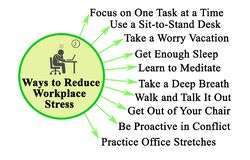

Many employees ring us enquiring about should they have a support person. I generally say yes, its the best opportunity to try and save your job. To save you from the consequences you face from being dismissed. However in some cases the employer has already made up their mind to dismiss the employee. The Employer is merely going through the veneer of the procedural process to avoid a successful unfair dismissal claim. Always build your case. Protect your rights, think of the comes you want and work towards that. A support person is part of your game plan. Support Person the Rights and Role is important reading.
The rights and role of a support person is not properly understood. A support person is someone that an employee can nominate to provide them emotional support during a meeting. Particularly in relation to a workplace investigation or dismissal.
Importantly, a support person is not an advocate or representative. They cannot speak on your behalf, and their role is solely to provide support and reassurance. For example, if you are asked a question during a meeting, your support person cannot answer the question for you.
Nevertheless, a support person may be able to fulfil other roles that do not interfere with the workplace investigation meeting. For example, a support person may be able to take notes on the meeting. A support person may also be able to act as an intermediary between yourself and those presiding over the meeting. If you are feeling too emotionally distraught, your support person may be able to request a short break so you can recover.

The importance of a support person was recently highlighted by the Fair Work Commission in Goss v Health Generation Pty Ltd.[1] At paragraph 48 of the decision, Deputy President Clancy explained:
Support persons have an important and useful role to play when involved in investigatory and disciplinary matters in the workplace. While a support person is not an advocate per se and should not hijack a lawful and reasonable process or answer for an employee. I do not subscribe to the absolute view that they should only be seen and not heard. This is because there may be circumstances in which an employee might be experiencing difficulty in comprehending aspects of the process or an employer might be misconstruing an explanation and the support person present can help improve the quality of the dialogue.
Deputy President Clancy
This decision by Clancy DP affirms that although support persons cannot advocate on behalf of the employee. Their role is important to maintaining the fairness of workplace investigatory and disciplinary matters. Clancy DP noted that support persons are not expected to be ‘seen and not heard’. Meaning that a support person does not completely lack a voice in such meetings. But they can speak to help an employee understand what is being said or clarify miscommunication.
A support person can be anyone chosen by the employee, such as:

Any meeting where an investigation, discipline or termination are discussed can be very stressful. Such meetings often feel like an interrogation, with the employee facing one or multiple managers, supervisors, owners or HR representatives. A support person is present to neutralize this imbalance and make an employee feel that they have someone on their side.
Employees have a right to request a support person in any discussions relating to workplace investigations. Potential dismissal or other disputes, including general protection related matters. An employer cannot unreasonably refuse the request.
However, there is no obligation on an employer to inform the employee that they have a right to request a support person. Instead, the employee must positively seek to enforce the right themselves. Moreover, there is also no obligation on an employer to provide the employee with a support person.
S 387 of the Fair Work Act 2009 (Cth) describes circumstances which point towards an unfair dismissal. One such circumstance, at s 387(d), is whether the employer unreasonably refused an employee’s request for a support person. This means that if you are dismissed and your request for a support person was refused without reason, you may have a case for unfair dismissal. It should be noted factor alone may not be enough to prove a whole unfair dismissal case. However it may certainly be symptomatic of a lack of procedural fairness or a harsh outcome. As described by the Explanatory Memorandum to the Fair Work Act (which explains what the section means):
This factor will only be a relevant consideration when an employee asks to have a support person present in a discussion relating to dismissal and the employer unreasonably refuses. It does not impose a positive obligation on employers to offer an employee the opportunity to have a support person present when they are considering dismissing them. It will be one factor FWA must consider when determining whether a dismissal was unfair, having regard to all of the circumstances, including the capacity of the employee to respond to the allegations put to him or her without such a support person being present.
Explanatory Memorandum to the Fair Work Act
As aforementioned, a support person is not an advocate. Therefore, if an employee requests an advocate, but this is refused by the employer, this would unlikely amount to procedural unfairness or constitute an unfair dismissal. This was affirmed in Appeal by Victorian Association for the Teaching of English Inc [2014] FWCFB 613.

If you don’t know what the meeting is about, but it appears it will be in relation to disciplinary proceedings or allegations of misconduct, then it is worthwhile exercising your right to request a support person just in case. For example, if the notice to attend the meeting states that it is in relation to ‘serious misconduct’ or ‘allegations’. Or otherwise appears serious in nature, dismissal may be a possible disciplinary outcome. Even if you are unsure about whether you will be dismissed. It may still be prudent to request a support person anyway. Especially considering the employer is not obligated to inform you of your right to a support person.
Obviously, there will be no refusal where the employee does not request a support person at all. Other circumstances where the refusal may be reasonable include where the employee requests on extremely short notice for the meeting to be postponed so their support person can attend, even though the employer provided adequate notice of the meeting.
Another example is where an employee’s choice of support person was unavailable, but the employee did not request an adjournment of the meeting.
To reiterate, a refusal of the request for a support person is unreasonable, the employee may have a case for unfair dismissal. Such circumstances may include where:
If you have been dismissed or your facing dismissal or you believe you were unreasonably refused a support person, you may have a case of unfair dismissal. Call 1800 333 666 for an obligation-free consultation about your options.

If you have any questions regarding the “role of a support person”, call us for a chat. If you have been dismissed. Subjected to a workplace investigation, general protections adverse action or you believe you were unreasonably refused a support person, you may have a case of unfair dismissal. Call 1800 333 666 for an obligation-free consultation about your options. We at A Whole New Approach are here for you, we are not employment lawyers. AWNA is the nations leading workplace advisors, we have our “finger on the pulse” for you. Any Fair work Australia issues, any diversity in the workplace issues, termination of employment, been sacked, whatever, call us, workplace advice is prompt and confidential.